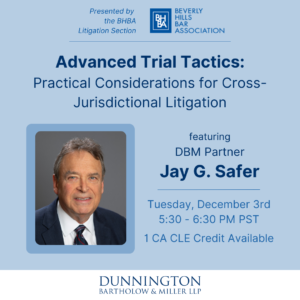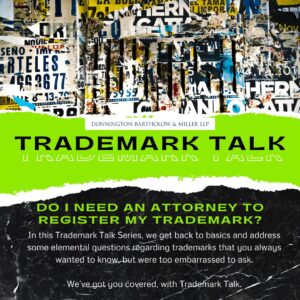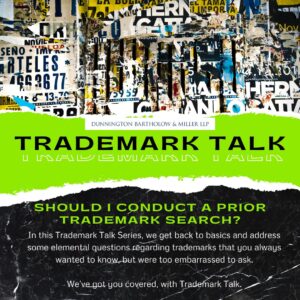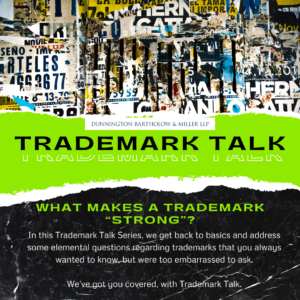Believe it or not, New York real property owners should be aware of the “rule against perpetuities” when structuring transactions – the rule arises in many more cases than you think. New York’s rule against perpetuities is taught in the first year property courses of law schools, included in bar review courses, and usually promptly forgotten.
New York real property owners should be aware of the “rule against perpetuities” when structuring transactions – the rule arises in many more cases than you think. New York’s rule against perpetuities is taught in the first year property courses of law schools, included in bar review courses, and usually promptly forgotten.
But that’s dangerous. I’ll explain why.
Here’s the Rule Against Perpetuities in NY: “No estate in property shall be valid unless it must vest, if at all, not later than twenty-one years after one or more lives in being at the creation of the estate and any period of gestation involved. In no case shall lives measuring the permissible period of vesting be so designated or so numerous as to make proof of their end unreasonably difficult.” EPTL 9-1.1(b).
Got it?
I thought not. The short version is that no interest in real property is any good unless is vests, that is, comes into being, no later than twenty-one years after a life in being as stated in the instrument creating the interest, such as a deed, will, or contract. And if there is no “measuring life” mentioned then you count twenty-one years from the date of the instrument.
Here’s why you should care.
For one thing, you should care because you are going to die and you want to plan for what happens to your property when you do. But if your plan is not careful, it might violate the Rule Against Perpetuities and your property goes nowhere but to court where your survivors fight over it.
For example, you could will your house to your sister for life and then to the oldest of her surviving children when they turn 30. This violates the Rule Against Perpetuities because it’s possible that no one alive today will receive the interest. For example, if your sister’s children die, and then she has another child and dies, the interest might not vest in anyone alive.
Or for another example suppose you will a building you own to your sister, so long as it is never used as a bar or restaurant, in which case it goes to your brother. That violates the Rule Against Perpetuities because it is possible for the interest to vest — someone opens a bar in the building and it goes to your brother’s heirs — more than 21 years after the death of everyone involved when you willed the building to your sister. Thus, the conveyance is not valid.
But what about while you’re still living, should you care about the Rule Against Perpetuities then? Yes.
But why, you ask? I’ll tell you.
Let’s suppose you own a nice little building in Brooklyn with a small grocery you run on the ground floor and two nice apartments upstairs, one of which you live in and one you rent out. And suppose further that knowing that you are going to die someday you decide you don’t want to spend the rest of your life selling groceries. So you decide to sell your building, take the money, and live out your days on the beach.
But you care about your neighbors and what could happen to them after you leave. In particular, you don’t want their children to be exposed to drugs. And now that pot is legal, you don’t want anyone to turn your bodega into a cannabis shop.
So you tell your lawyer you want your deed to prohibit anyone who buys your building from operating a cannabis shop there or else the property will go to your son and his heirs. Sorry, no you can’t, says your lawyer. That would violate the Rule Against Perpetuities because there is no time limit on when someone could open a cannabis shop and lose the building to your son or his heirs.
Finally, let’s suppose your next-door neighbor comes to you asking to buy your building to turn it into a single-family home for him and his family. And you say thanks, no thanks, you’re not ready to move to the beach — and anyway, the little old lady who lives in the other apartment with her grandkids is protected by rent control and it would be too nasty and expensive to get her out.
Then the neighbor says that’s ok, he can wait. He just doesn’t want you to sell the building to some stranger when you’re ready to go. So he asks you to sell him the grocery now and the apartments later whenever they are vacant.
So you ask him how you can do that. And he says, you sell him a one-third interest in the building and agree on a price to buy the other two-thirds whenever the apartments are vacant. In the meantime, you and he own the building together as tenants in common with an agreement that he collects the rent from the store and pays one-third of the building’s operating costs.
You say yes. You and he sign a contract to sell the one-third now and the two-thirds at a given price later whenever the apartments are vacant. You deed him his one-third interest in the property — and then you wait, and wait, and wait. And the little old lady dies and her grandkids stay in the apartment as rent-controlled tenants. And you wait some more.
Years later after you and the grandkids have moved and the apartments are finally vacant, your co-owner says he’s ready to pay the option price to buy your two-thirds interest in the building. But now the fair market value of the property is much more than the option price and you don’t want to sell your interest at a discount.
Instead, you say that the option agreement is no good because it violates the Rule Against Perpetuities because the option agreement sets no deadline for when it can be exercised. So you refuse to give up your ownership interest in the building at the now-low price you agreed to all those years before. Then your co-owner sues you to see if a judge will order you to sell your interest in the building at the option price.
And that is another example of how the Rule Against Perpetuities works and why you should care about it.
These are real problems that real people have with their real property in New York.
If you have real problems with your real property in New York, call Dunnington to find a solution.
by Andrew Weltchek









